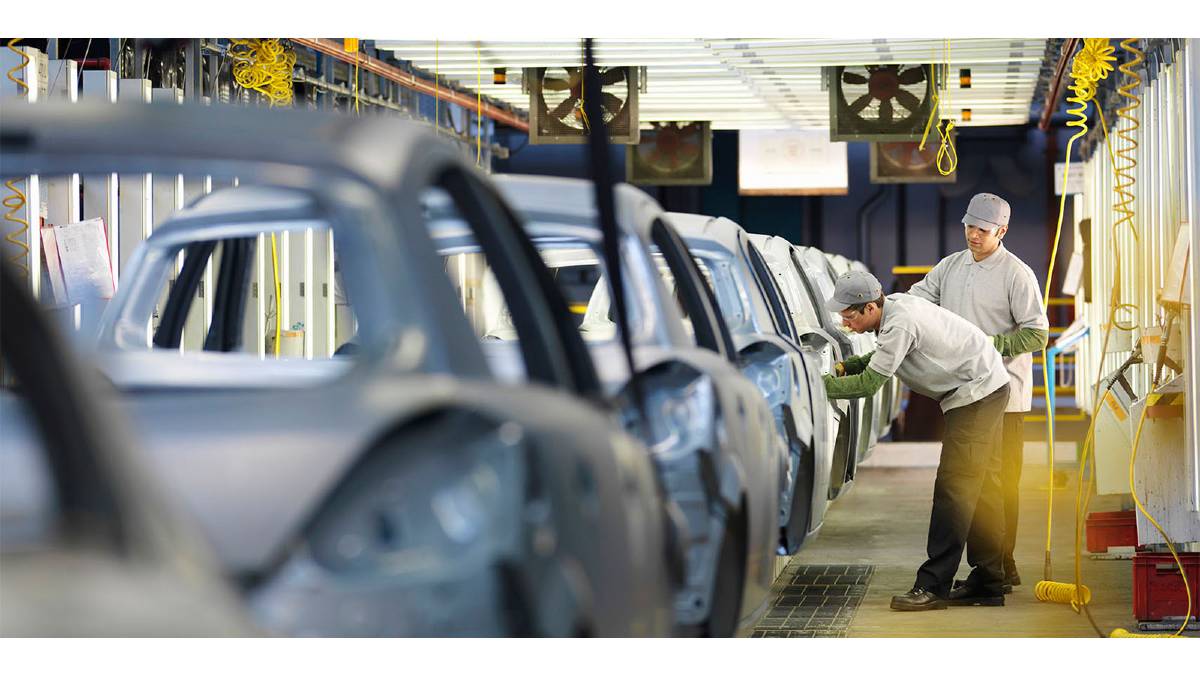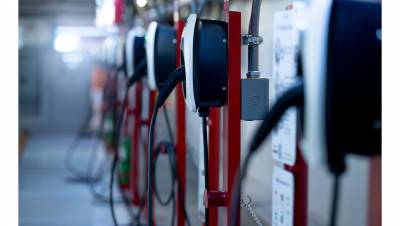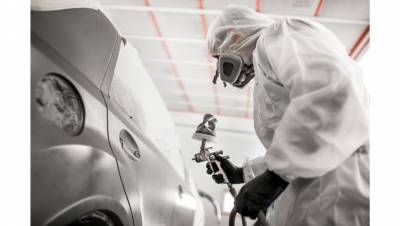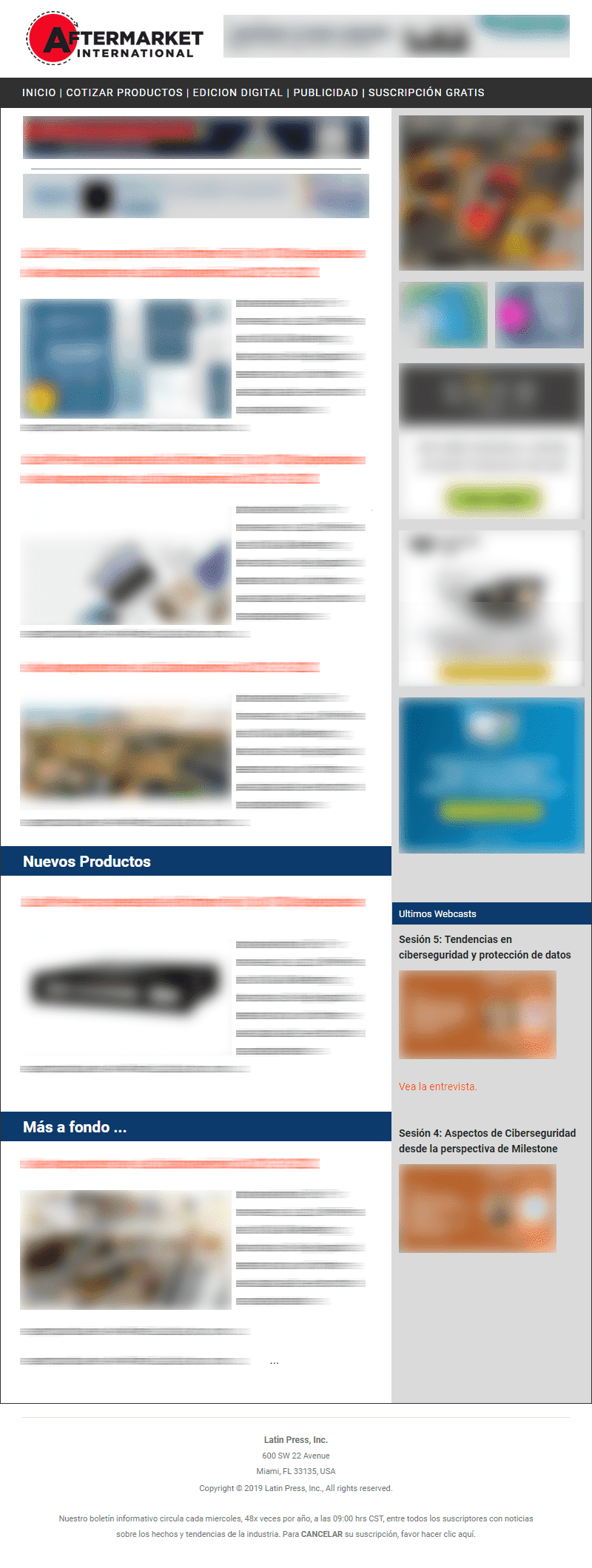The global disruption caused by Covid-19 left an indisputable lesson: Agility is indispensable, it is the secret of resilience and the ability to adapt to unexpected changes.
By José Rivero*
Agility allows you to adapt to topics such as raw material shortages, supply chain bottlenecks, digital transformation and meet high customer expectations. In the auto industry, chip shortages caused losses of more than $200 billion in 2021, which equates to about 11.3 million fewer units in production volume, according to Motortrend reports. Fortunately, modern technology can help companies analyze risks and respond quickly by mitigating risks.
The automotive industry must be prepared for continued volatility. Some analysts reiterate that the long-term impact of the chip shortage may cause the delay of another seven million units in 2022 and 1.6 million in 2023. By 2025 the sector will reach the same pre-pandemic levels in terms of chips. The entire automotive sector must look for creative ways to solve problems, collaboration, innovation to overcome this type of problem.
However, the need for agility goes far beyond supply chain issues. Manufacturing companies need highly flexible, cloud-based technology to deal with global volatility, including the disruption of the crisis in Ukraine. Customer demands for electric and hybrid vehicles, changing shopping habits, new user experiences and innovations on the assembly line also add pressure to the automotive industry that must react quickly, shift resources and reprioritize.
Commitment to agility should be a comprehensive business strategy, starting at the top and across all channels. A holistic strategy that supports change must be put in place and communicated by executives.
Unfortunately, the manufacturing industry is known for its traditions, steady rhythms and not so much for rapidly adopting new technologies.
Many CEOs and CFOs are risk-averse, and avoid anything that affects on-time deliveries and fluid cash flow. Capgemini research says that in 2020 only 32% of manufacturing companies used data for decision-making and that 38% still relied on paper-based systems for plant floor management.
Infor confirms that companies in the automotive sector are slow to adopt modern technology and that with the use of old technology they were not well prepared to face drastic and sudden disruptions.
The pandemic was a huge accelerator driving businesses to see the enormous value of cloud technology. Those who delayed implementation suddenly needed it and quickly to facilitate remote work. According to a McKinsey Global survey of executives: "Companies advanced the digitization of their customer and supply chain interactions as well as their internal operations an average of three to four years."
The effects of the Covid-19 pandemic will likely be felt for years, McKinsey reports, so business leaders need to be vigilant for changes in the market and changing remote and office work patterns. According to Infor, there are six crucial areas that demand greater agility in automotive organizations:
Product Innovation
The transformative impact of CASE – connected, autonomous, shared and electrified – is already broad and demands keeping pace with design and operational changes, and increasingly shorter product lifecycles.
Fortunately, product lifecycle management helps automotive manufacturers and suppliers manage the entire process from the research and development stages to testing validation and engineering change management.
Collaboration
Design changes involve engineers, industrial designers, plant floor operators, purchasing and supply chain. Sharing ideas, CAD graphics and managing the impact of changes within the business can be done through collaborative tools such as digital platforms. Collaboration can also extend between companies.
Customer Experience
The user experience has undergone significant transformations; Even medium-sized vehicles are now equipped with a wealth of luxuries. High-end details are now frequently considered standard as heated seats, camera-assisted parking and collision avoidance sensors.
Such more complex semiconductor changes demand unprecedented levels of business agility and agile technology solutions. Fast and easy to deploy, cloud-based solutions provide flexibility and scalability in launching new business entities and models, new operational processes and new partnerships that operationalize these capabilities and achieve a differentiated customer experience.
Supply chain resilience
The supply chain crisis that emerged in the pandemic has shown that the automotive industry should not rely on an extended supply chain for critical parts and components.
Global manufacturing and distribution companies struggle to find the right balance between local sources and regional centers versus tapping into the financial potential and benefits of a dispersed supply chain. Many are now reconsidering just-in-time (JIT) strategies, increasing the minimum level of safe stock to avoid running out of stock.
Supply chain management solutions provide end-to-end visibility, accurate forecasting, and enhanced analytics that help executives address strategic and tactical challenges, examine "what if" scenarios, and have more effective data-driven decision-making.
Types of manufacturing orders
It is becoming increasingly important for manufacturing companies to adopt mixed manufacturing processes and be able to collaborate with customers according to their specifications and design details. CPQ solutions for configuring, appraising, and quoting help streamline processes for customizing highly configured products and generating quick quotes with specifications and details for customers to approve.
Sustainability
The environmental ramifications will continue to have a significant impact on market trends and direction. Circular industrial sustainability and carbon neutral are two terms that have already entered the manufacturing lexicon and are increasingly appearing in debates about the future of the automotive industry.
As businesses begin to prepare for the new normal, agility will become increasingly important. Constant disruption is here to stay, so organizations need to be prepared. Highly agile, industry-specific ERP solutions and cloud technology for business processes help automotive companies in a world of continuous disruption.
*Country Manager of Infor Mexico





















Leave your comment